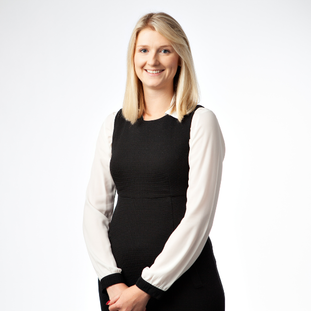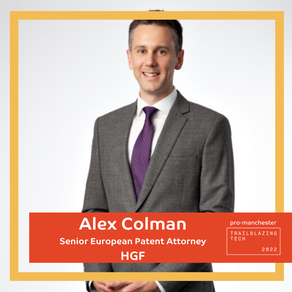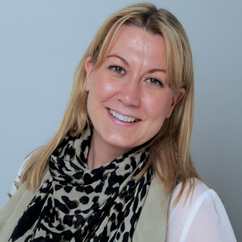 David Gardner, partner at UK law firm TLT comments on the rise of blockchain and why lawyers need to familiarise themselves with this new technology. At the start of 2022, the Law Society worked together with Tech London Advocates to produce the second edition of its Blockchain Legal and Regulatory Guidance. The update to the guidance is timely, as the blockchain and its diverse applications continue their march from the furthest fringes of the internet into the mainstream. It’s increasingly important for lawyers to develop their knowledge and understanding of the technology that underpins the blockchain and the legal risks arising from its application in areas ranging from cryptocurrency to digital artwork. The updated guidance convers a range of key issues for legal practitioners to be aware of when advising on distributed ledger technology (DLT) matters. It was written with contributions from a wide range of experts including the Law Commissioner for commercial and common law, Professor Green. The guidance identifies three key growth areas for 2022:
In this blog we take a more detailed look DLT and blockchain and why it’s crucial for those working in the legal world to understand their impact. We also consider the contentious issue of whether blockchain can be sustainable. What is distributed ledger technology? In the guidance, the Law Society describes DLT as “an umbrella term for technologies that seek to store, synchronise and maintain digital records across a network of computing centres”. The Law Society explains that blockchains are one of the most well-known examples of DLT. Blockchains are formed where bundles of digital records are securely encrypted and strung into a sequence of data container structures known as blocks. The blockchain is stored on a distributed network of computers known as nodes. The role of the nodes is to upload data onto the blockchain and to verify its contents. Well-known public blockchains include the Bitcoin blockchain and the Ethereum blockchain. Those blockchains keep a record of cryptocurrency transactions and are accessible to anyone who downloads the right software on their laptop or smartphone. Significance for legal practitioners As well as digital currency applications, Blockchains can also be used to execute and verify smart contracts between nodes, where multiple parties can share “one version of the truth” via their shared trust in security offered via the encryption on the blockchain. Blockchains underpin Non-Fungible Tokens (NFTs), which can act as a digital certificate of ownership with use cases ranging from virtual football cards to ecological re-wilding projects. See also HERE. In his foreword to the Guidance, Master of the Rolls Sir Geoffrey Vos predicts that in the future every lawyer will need to be familiar with blockchain and its key applications in crypto assets and smart contracts. TLT is already working with a number of clients across a range of sectors as they look at blockchain-based solutions and assess the risks in this rapidly growing area. These range from retailers and sports/leisure providers interested in minting NFTs, to financial services institutions concerned about their exposure to crypto-currency transactions. There are potential applications for DLT across all our key client sectors in Financial Services and Fintech, Retail, Digital, Clean Energy and Real Estate. In the Public Sector, the Bank of England has been looking into central bank digital currencies (CBDCs) since 2020. Blockchains and ESG With more companies paying closer attention to their ESG credentials and wanting to align themselves with organisations that reflect their own values, it’s important to understand the ESG debate when it comes to blockchains. The “proof of work” or POW method, used by the Bitcoin blockchain, infamously requires country-sized energy consumption. This is because nodes compete solve a complex mathematical puzzle before recording new information on the blockchain. Solving the puzzle first requires significant computational power (and therefore electricity consumption). There are several different strands to the arguments advanced by blockchain advocates about making blockchains more sustainable. Due to their power consumption requirements and incentive to use cheap energy, blockchain providers and bitcoin miners may seek out and finance more renewable energy projects. This could be the catalyst for new, more innovative projects, driving the adoption of clean energy. . However, for as long as Bitcoin and others resist calls to move away from the energy-intensive POW method, businesses and consumers will be hesitant to adopt technology that relies on and incentivises mass energy consumption. The reality is that Bitcoin mining today is still overwhelmingly powered by fossil fuels and diverts significant energy resources from other uses. As commercial, environmental and regulatory pressures around ESG align, in the next few years, we’re likely to see blockchains and the applications that use them developing and marketing solutions better aligned with ESG objectives. As mentioned above, there are a huge range of blockchain applications, stretching far beyond the confines of Bitcoin and other crypto assets. Organisations considering investing in or developing a blockchain solution should ensure they investigate the credentials of the solution provider and the operating model of the particular blockchain. This will be vital to all organisations who have serious ESG objectives and want to ensure their blockchain innovations contribute to those objectives rather than undermining them.
1 Comment
 Non-fungible tokens (NFTs) are a hot topic at the moment and when new technology such as this meets existing laws, things can get interesting. What are NFTs? Non-fungible tokens (NFTs) are digital tokens stored on blockchain and represent real-world items, once an NFT is formed, it is unique and cannot be replicated. They also cannot be deleted but simply ‘burned’ rendering them non-transferrable. Think of them akin to art works or trading cards in digital form. NFTs find their value in virtual worlds in the metaverse, such as OpenSea, Roblox, Cyrptoboxes and Decentraland. At the moment, there are a number of different platforms for these virtual worlds and there is no one central metaverse. Maybe this is something that will come in time. So what does an NFT have to do with retail? It is worth noting that NFTs can exist both in the ‘real’ world as digital artworks which are openly traded on the various peer to peer platforms, but we are also now seeing them within the metaverse. This means that NFTs are crossing the border from the real world to the virtual world. Retailers are starting to purchase ‘land’ in the metaverse to sell virtual goods, which includes those in the form of NFTs. For example, a user can purchase fashion items as NFTs which only exist within the metaverse. So their virtual avatar has the latest designer outfit, but it is all virtual and importantly, there appears to be a market for it. There have been reports of some NFTs selling for incredible sums of money, the NFT of the first Tweet by Jack Dorsey sold in March 2021 for $2.9million! Such a purchase does seem questionable when the tweet is simply some text and readily readable online but as the saying goes, ‘one man’s trash is another man’s treasure’. Interaction with Intellectual Property law and what retailers should consider Brand owners are now starting to file trade mark applications for their core brands which have entered into this digital age of NFTs and the metaverse. Given how new and evolving both NFTs and the metaverse are, in terms of their popularity and uses, brand owners are now realising there are gaps in their trade mark protection. For example, a fashion house would normally have clothing, bags and accessories covered under their trade mark registrations but now they are having to think about digital versions of these, which would fall under the computer software heading. Retailers specifically will need to consider whether their trade mark registrations cover the retail services of virtual goods. We are even seeing trade mark applications covering entertainment services which is a little outside the box for most retailers, but this would then cover their services which fall within the virtual metaverse (think akin to gaming). There are other considerations to take into account such as enforcement. As a brand owner you would need to have the appropriate rights in place in order to be able to enforce against a third party. So far, we haven’t seen much in the way of take down policies on these metaverse platforms, but this is something which will hopefully be introduced soon. Again, in terms of infringement actions we haven’t got much to go on as yet. There is a big case ongoing in the US between Hermès and Mason Rothschild. For background, Rothschild created a series of 100 works titled MetaBirkins. These were created as NFTs which were the same shape and design as a Hermès Birkin bag and sold on platforms such as OpenSea. Hermès are claiming trade mark infringement, Rothschild claiming they are works of art and thus entitled to his freedom of expression and interpretation. He is however, benefitting finically from the sales of the NFTs and the publicity of the Court action. This is a US case and the outcome awaits to be seen, but it could be a good indication of how such matters would be handled in the UK courts also. Conclusion To sum up, there are a number of considerations for retailers to consider as to their IP protection for this new digital age and what approach is taken may depend on factors such as budget, future expansion plans and whether to have a proactive or reactive approach to trade mark protection and enforcement. About author Rachel is a member of the Chartered Institute of Trade Mark Attorneys and works with companies and individuals ranging from large multinationals to small business start-ups advising on trade mark, design and domain matters. Rachel provides pre-filing advice relating to brand development, protection and enforcement. She also undertakes pre-filing clearance searches and handles the filing and prosecution of new trade mark and design applications. Rachel also advises on portfolio management and brand enforcement strategies including e-commerce monitoring on online platforms such as Alibaba and Taobao. Further, Rachel advises on trade mark opposition, invalidity and revocation proceedings at the UK Intellectual Property Office. Name: Rachel Platts Title: Trade Mark Attorney Company: HGF Website profile: https://www.hgf.com/our-people/rachel-platts/ Telephone: 0161 247 4900 Email: [email protected]  By Alex Colman, June 2022 As part of its commitment to achieve net zero by 2050, the UK government has published a ten point plan for a Green Industrial Revolution. The plan focuses on stimulating development in ten technology areas, including advancing offshore wind and greener buildings (two areas where the UK ranks number one of the top ten patenting countries worldwide, according to a UK Intellectual Property Office report). At the heart of the plan, the government considers that innovation will hold the key to achieving net zero. Major investment will be needed to realise the development and deployment of innovative technologies, if ambitious targets to tackle climate change the world over – including Manchester’s own ambition to become a zero carbon city by 2038 – are to be met. Innovation is inextricably linked to intellectual property, which exists to help innovators get value from their ideas and a return on investment. If the government is truly backing innovation, what incentives to create intellectual property is it offering businesses and entrepreneurs to fuel the Green Revolution? UK IPO Green Channel Patent applications for environmentally beneficial inventions can gain from the Green Channel, a free service that accelerates the application process by up to nine months. Applicants have the option of which parts of the application process to accelerate (i.e. search, examination, publication), and in applying for the Green Channel are required only to make a request in writing setting out a reasonable assertion that their invention has some environmental benefit. It might be obvious to some that their invention has the required benefit, for example where the invention relates to a solar panel or a wind turbine. However, the Green Channel has wide application, for example a more efficient manufacturing process would qualify if suitably explained when making the request. Accelerating an application can be beneficial in certain situations, such as obtaining a granted patent or positive examination report to attract investment or qualify for funding. Securing a granted patent can allow businesses to elect into the Patent Box, which is described below. Also, the UK Intellectual Property Office lists all Green Channel applications on a dedicated publicly available database, so would-be investors can easily identify innovators in green technologies. Patent Box Though not exclusively for green technologies, the Patent Box has been created to encourage businesses to keep and commercialise their intellectual property in the UK. Having a patent granted by the UK Intellectual Property Office or the European Patent Office allows business to apply a lower, effective 10% rate of corporation tax to profits it earns from patented inventions. The value of this incentive is set to increase significantly with the rise in the corporation tax from 19% to 25% in April 2023. As a granted patent is needed for business to elect into the Patent Box, applicants can make use of the Green Channel if their invention has some environmental benefit to obtain grant of a patent more quickly. R&D Tax Credits Like the Patent Box, R&D Tax Credits provide a generous tax break to UK businesses to encourage innovation in all technology areas. R&D Tax Credits can be claimed in combination with the Patent Box, and can even be claimed on unsuccessful projects. For businesses to qualify for R&D Tax Credits, they must be working on a specific project to make an advance in their particular field, which must be in science and technology, not a social science or theoretical field. The available relief does depend upon the size of business, and whether the project has been subcontracted. For qualifying SMEs, a deduction of 230% of their qualifying costs can be made from their yearly profits, or a tax credit can be claimed if the business is loss making, worth up to 14.5% of the surrenderable loss. Large businesses can obtain a tax credit of up to 13% of qualifying R&D expenditure. In Conclusion… … there are incentives to create intellectual property, and the intellectual property system provides an environment for businesses and entrepreneurs benefit from creating new, or adapt existing, technologies, to meet sustainability targets like net zero. As innovation is inextricably linked to intellectual property, businesses should ensure that they have complementary strategies for each to capture and realise the value of their ideas. About the Author Alex is an engineer-turned-lawyer, specialising in protecting inventions relating to building technologies and construction products, medical devices, particularly injectables and wound care, automotive technologies and textiles. Alex studied civil and structural engineering at Newcastle University, giving him particular insight into the built and natural environments, and the realities of designing innovative and sustainable solutions that help to address climate change. Name: Dr Alex Colman Title: Senior European Patent Attorney Company: HGF Website profile: https://www.hgf.com/our-people/alex-colman/ Telephone: 0161 247 4900 Email: [email protected] Trailblazing Tech – Top 50 North West Tech Transformers Last week our Chief Executive, Sam Booth was honoured to be featured in the inaugural Top 50 North West Tech Transformers list alongside many esteemed trailblazers across industry. The list, compiled by BusinessCloud alongside Imago Techmedia, the organisers of Manchester Tech Week, and sponsored by AWS, Cisco, Okta, Auth0 and RingCentral, features the Top 50 North West Tech Transformers driving digital transformation from bases across Greater Manchester, the Liverpool City Region, Cheshire and Lancashire. The list profiles technologists within the region’s high-profile businesses and organisations. It also recognises industry changemakers in areas such as skills and diversity & inclusion. Amongst the list are respresentatives from Sykes Cottage, PrettyLittleThing.com, AstraZeneca and the BBC to name a few. The full list of 50 figures can be viewed here The list has been produced ahead of Manchester Tech Week being held at Manchester Central between the 25th – 29th April and provide a perfect lead in for the upcoming pro-manchester Trailblazing Tech Conference 2022. The pro-manchester Trailblazing Tech conference will be held at the Lowry Hotel on the 24th June and will be embracing the big topics in tech and debugging the buzzwords. We will be discussing developments in fintech and cyber security, analysing the impact of omnichannel on retail and digital marketing, exploring how businesses are using technology to leverage their sustainability ambitions and addressing the divide in healthcare technology. Plus much more. To find out more please click here or email [email protected] |
Authorpro-manchester ArchivesCategories |

 RSS Feed
RSS Feed